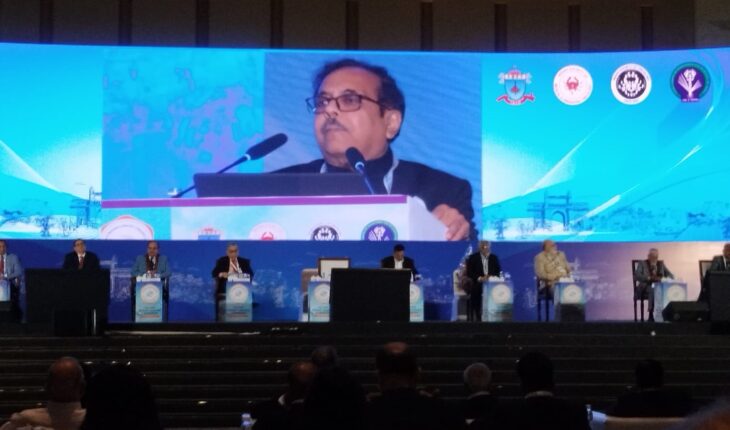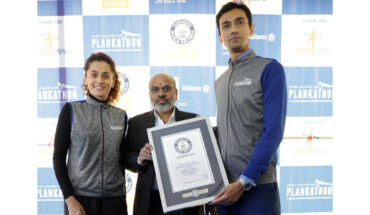Mumbai: The 3rd Indian Cancer Congress was held here recently with as many as 2,000 abstracts (oral and video) being presented, even as the various speakers highlighted the global efforts in overcoming the dreaded cancer disease.
Maharashtra Minister Girish Mahajan, who was the Chief Guest, said that the State too is witnessing increasing cancer cases and is bearing responsibility with the Central Government through various schemes, besides the BPL cards and Rs 5 lakhs treatment costs.
Lamenting the huge numbers of Indian youth addicted to tobacco, alcohol and calling for greater awareness in people’s mentality towards such deadly addictions, he said the government is focusing on supplying related cheaper generic medicines to reduce cancer patients’ expenses.
The Maharashtra Government is also increasing the number of medical colleges and treatment centres in urban and village areas, due to which, he said, the present scenario is witnessing foreigners coming to India for treatment instead of the reverse.
The various speakers highlighted the present witnessing a +revolution+ in cancer treatment and its affordability alongside changing from “End of Life” to living a healthy life.
Dr Raman Deshpande, Chair, Reception Committee, said that over 6,500 people from 20 countries had registered for this Congress.
Noting that the medical world is “constantly pushing the boundaries in the fight against cancer,” Dr Manoj Gupta said the 4,700 members of the Oncologists Association of India were evolving their knowledge and expertise in this regard and soon this treatment would witness cancer treatment time being +reduced+ from “8 weeks to one week and soon even to one day itself.”
About 10 million new cancer cases are diagnosed annually, said one speaker, while another noted that “Removing ignorance, pain and suffering while ushering the light of healing in the world” is the common effort of the medical community.
Oral cancer is one of the most common cancers in the Indian sub-continent, while cervical cancer is the most common cause of cancer-related deaths in southern parts of Africa.
(BOX): Statistics in The Lancet Oncology show that lack of action would see millions of lives needlessly lost and a predicted US$6.2 trillion in cumulative gross domestic product would be wiped out by 2030.
“The disruptive and expensive advent of new technology, worsening workforce challenges, a global pandemic, and increasing political instability and conflict have changed the cancer care landscape.”
“The way in which surgeons and other stakeholders involved in cancer control aim to improve cancer surgical care is now infinitely more difficult than in 2015.”
The First Lancet Oncology Commission on Global Cancer documented the extraordinary need for cancer surgery, stating that +over 80% of 15.2 million cancer diagnosed patients worldwide in 2015 would need a surgical procedure at some point in their treatment.+
Global cancer surgery also needed to be a +political priority+ for national policy-makers, research funders, international organisations and global alliances. Global research funding entities needed to address the deficit in global cancer surgical research to help countries develop and scale up cancer surgical systems appropriate for their needs, the Lancet stated.






